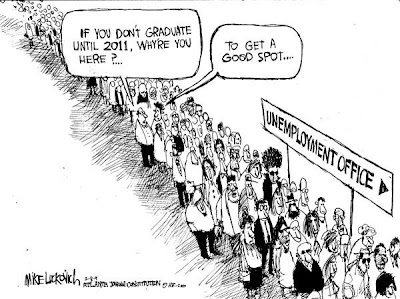MD Democrats Ignore Economy, Concentrate on Ramming Radical Social Agenda Through the Legislature

from the
Washington ExaminerMaryland is facing a $1.6 billion shortfall in the state budget. Gas prices are climbing toward $4 a gallon. And unemployment remains stubbornly high.
Still, the Maryland General Assembly had other priorities Wednesday. The House was debating same-sex marriage and the Senate was wrestling with whether illegal immigrants should get a break on college tuition.
Despite the fiscal woes facing the state and the country, the 2011 session in Maryland has been dominated by such social issues, including whether to legalize medical marijuana. Some observers argue that, given voters' concerns about the economy, legislators should hone in on getting the state's fiscal house in order first.
"Some people are saying precisely that: 'We need to put all our attention on the budget,' " said Matthew Crenson, professor emeritus in the Johns Hopkins University political science department. "They're very concerned about gasoline taxes and what's going to be cut in order to cover the deficit."
Count Del. Don Dwyer, R-Anne Arundel, among them.
"I think the fiscal crisis that Maryland faces should have been the most important piece of business," said Dwyer. "Are these issues that are so important that [they] should overshadow the state budget crisis? I don't think so."
But Shaun Adamec, a spokesman for Gov. Martin O'Malley, dismissed the notion that the budget has been placed on the back burner.
"Ignoring the budget is not an option, and I don't think anyone in the legislature is doing that," he said. "I don't think you hear from sitting in these hearings that it's being ignored."
Maryland lawmakers considered a gay marriage proposal last year, only to see the legislation die in a year in which they and O'Malley were up for re-election.
Tough decisions on such "inherently divisive" issues have been timed to have a minimal impact on elections, Crenson said.
"I don't think it's fair to place any weight on when something is considered and when it's not," Adamec countered. "Things come up when they come up."
Across the Potomac in Virginia, meanwhile, many of these social issues were largely settled in recent years. Voters approved a constitutional amendment in 2006 banning same-sex marriage and civil unions, and the state has some of the toughest immigration laws in the country.
"Gay marriage would be DOA in either chamber in Virginia, and so there's no need to talk about it in Richmond," said Stephen Farnsworth, a professor of communication at George Mason University.
Not that Virginia legislators were able to avoid social issues in 2011. Pro-life advocates won a major victory when the legislature approved a measure to tighten regulations on abortion clinics that is now in front of Gov. Bob McDonnell.
But again, Maryland legislators won't have to face voters until 2012, while Virginia lawmakers are up for re-election this year -- with new district lines and constituents to deal with.
"That makes people very cautious," Farnsworth said. "Even though both states are spending some time talking about social issues, the 800-pound gorilla in the room for every government is how to balance state budgets."
 from the Washington Examiner
from the Washington Examiner
No comments:
Post a Comment